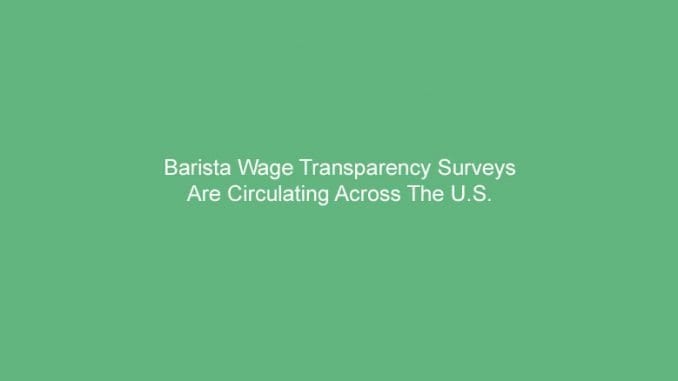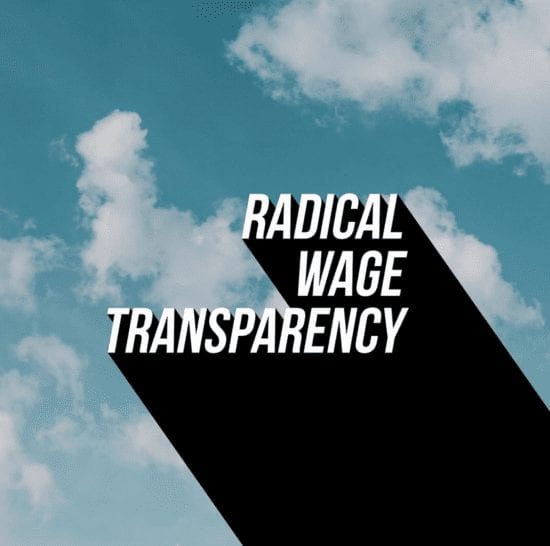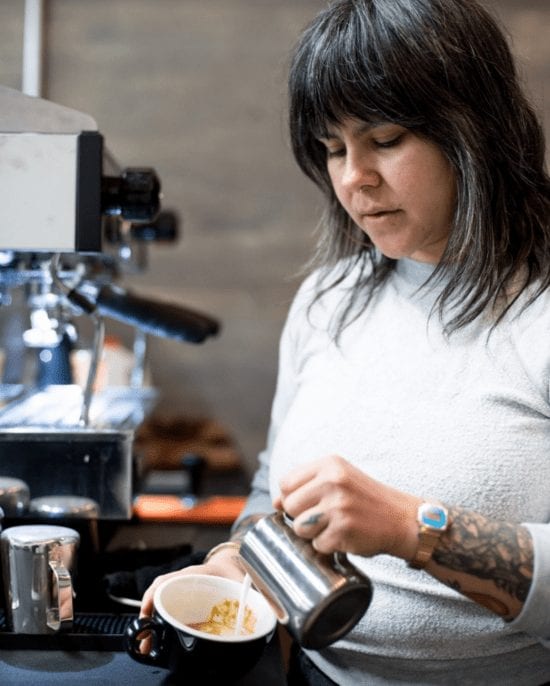
Baristas around the U.S. have been sharing wage information through publicly shared spreadsheets.
BY MARK VAN STREEFKERK
BARISTA MAGAZINE ONLINE
In the wake of recent barista-led activism, including awareness raised by Coffee at Large, Barista Behind the Bar, and an October 2 protest at Seattle’s Caffe Vita, another relevant development has been the wave of barista wage transparency surveys popping up in cities across the United States. In the Google Doc-based surveys, baristas and coffee workers are encouraged to share where they’ve worked, positions held, starting and ending wages, estimated daily tips, and whether they received any benefits or other perks. The anonymous results are viewed in a spreadsheet. Links to the surveys were shared widely through Facebook and Instagram profiles like @coffeeatlarge and @baristabehindthebar, along with local coffee community groups.

Inspired by museum employees who started a similar wage spreadsheet in May, a Philadelphia-based barista who chose to remain anonymous started a local survey of the wages and benefits of baristas in late September, with the goal of this wage transparency benefiting employees and employers alike.
Coffee at Large’s Rachel Hopke says, “People were sending us the article (about the Philly barista survey), and a couple of people asked if we’d do one for Seattle. Someone from the community stepped up and said they’d like to do it. From there we promoted it, and made a call to action for people from other cities to create theirs. We told them that we’d promote it on our platform.”

Oodie Taliaferro, an Austin-based barista, says they “decided to build my own (survey) after Seattle released theirs. We make a lot of lateral moves as baristas, and lots of things factor into why we change jobs/why people stay in place. (The information) helps us advocate for ourselves.”
Oodie also notes how the surveys can be improved: “After having conversations with members of the Black coffee community, it became clear that these surveys are contributing to racial-erasure. The Chocolate Barista’s Michelle Johnson and Adam JacksonBey pointed out that gathering info on survey participants that tells us how they’re marginalized and what they’re paid is more important than learning what any specific company is paying. Chances are most folks of privileged identities are making more than those that hold marginalized identities. Given the nature of the survey, I feel like it could’ve been way more expansive and we could’ve gathered more metrics.”
At the time of this article, 13 cities have started their own barista wage surveys, and it’s anticipated that more will follow. For the record, sharing wage or salary information is not illegal; talking about wages is protected under the National Labor Relations Act of 1935.
Camila Coddou, founder of Barista Behind the Bar, weighs in on why wage transparency can be discouraged. “There is a scarcity mindset in our industry … that says there are only so many slices of the pie, and in order to get ours we need to take from others. There is a better way to ensure we take care of our people … keeping those at the entry level in the dark about financials, and anything that gives them more access such as education and certifications for advancing their career is a tactic ultimately meant to keep those with more getting more and more. It’s time to do away with that model of business,” she says.

Rachel from Coffee at Large also cites another reason why wage transparency can be frowned upon. “Simply put, discussing wage has been discouraged by employers and made taboo by employers who don’t want to be transparent, because it makes it difficult for them to keep everyone satisfied,” Rachel says.
Sharing information about wages, while it might lead to some initial dissatisfaction, is a necessary step in making specialty coffee better, say those behind the transparency efforts. Rachel explains that more transparency is better for everyone.: “It would be great if owners could use this information and realize that it’s in their best interest to create a performance-based raise system or otherwise integrate transparency into their wage system. Transparency facilitates trust; trust adds value.”
Camila says the wage transparency surveys are a crucial key for allyship, advocacy, and radical transformation within specialty coffee: “In order to make radical transformation towards a more equitable industry in which everyone is able to feel safe and thrive, we need to understand that our personal financial health is intricately bound with the financial health of EVERYONE along the value chain, starting with the farmers and producers who provide us with our raw material. (The) first step is to actually talk openly about what everyone gets paid, and the financial specs on what it takes to run a café … (the) second step is changing pay structures and wage distribution in order to ensure everyone is coming up together, and that NO ONE is struggling to pay for their needs.”
For access to each participating city’s spreadsheet, you can go to Coffee at Large’s Instagram account and find the links on their Story Highlights.

ABOUT THE AUTHOR
Mark Van Streefkerk is Barista Magazine’s social media content developer and a frequent contributor. He is also a freelance writer, social media manager, and novelist based out of Seattle. If Mark isn’t writing, he’s probably biking to his favorite vegan restaurant. Find out more on his website.
